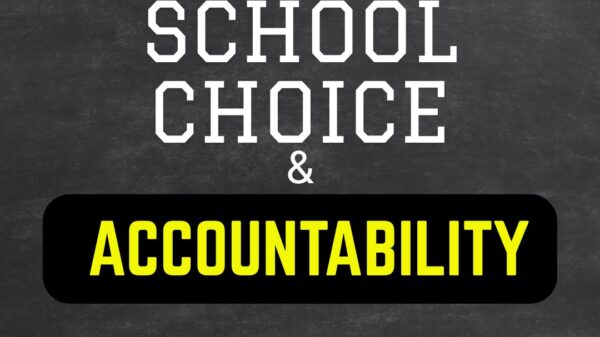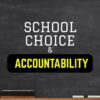By JC Bowman & Chad Harrington
The concept of “educator voice” emphasizes the importance of effective communication by educators and their role in fostering a positive learning atmosphere. Motivating the next generation of educators and utilizing research-based strategies recognized by seasoned teachers to ensure all students develop a strong academic foundation is crucial. Furthermore, incorporating educators’ values, insights, and expertise into educational decision-making is essential.
More educators, including teachers, administrators, and non-certified staff from kindergarten through graduate school, should contribute opinion pieces and share their experiences on social media to impact public policy. By collaborating, mentoring peers, and engaging with organizations like the Professional Educators of Tennessee, educators can share their perspectives, advocate positively for systemic change, and work to restore the educator voice in policy discussions and implementations.
Educators possess valuable strategies for advocating for their profession, informed by their classroom experiences.
Active participation in policymaking is crucial, as educators should engage with their communities and participate in conversations about school safety, working conditions, and teacher recruitment and retention.
Direct interactions with lawmakers can significantly improve their influence.
It is vital to ensure that educators’ viewpoints are included in education policy and legislation.
Advocating for improved salaries and working conditions for educators is essential.
The future of K-12 education relies on educators’ voices to tackle persistent challenges.
Key goals include enhancing personalized learning, reforming funding and support for teachers, and preparing students for an increasingly complex and evolving world.
Priorities should focus on ensuring students are equipped for college and the workforce, improving the quality of K-12 education, and connecting education to workforce preparedness through career and technical education (CTE). Including educators in decision-making processes is crucial for job satisfaction and retention.
Addressing funding disparities between affluent and low-income districts is imperative, as is evaluating the impact of charter schools and voucher programs on public education. Promoting STEM and STEAM education, integrating the arts, and incorporating essential 21st-century skills into the curriculum are necessary steps forward.
Leveraging adaptive AI platforms for personalized learning, ensuring universal broadband access, and utilizing technologies such as VR and AR can significantly enhance educational experiences. Additionally, supporting inquiry-based learning and providing ongoing training for educators are vital for retaining talent.
Prioritizing student safety and mental health services in schools is crucial for effectively addressing students’ challenges. We must advocate for these essential measures to support student well-being and success. We must prioritize equipping students with skills for a rapidly changing job market, promoting community colleges, and acknowledging the unique needs of both rural and urban schools. Ultimately, meaningful engagement with stakeholders is crucial for improving education at all levels.
Recognizing teachers as professionals is fundamental. They cultivate critical thinking and a passion for learning in students and need the autonomy to connect creatively with them. Educational reforms often aim for better outcomes, but can neglect the individuality of both children and teachers. A flexible education system is necessary, enabling educators to meet the diverse needs of students.
Empowering teachers to innovate and adapt is vital for creating an effective educational environment. Valuing their professionalism enhances the experience for both educators and students. Elevating the teacher’s voice in education is essential for transforming the profession and ensuring a better education for all children.
The educational landscape is undergoing significant changes due to technological advancements, innovative teaching methods, and shifting societal needs. This transformation requires a thoughtful response, with educators playing an active role in the discussions. Educators deserve a place in the decision-making processes as experts in their field.
Chad Harrington is an author and owner of Harrington Interactive Media.
JC Bowman is the executive director of Professional Educators of Tennessee, a non-partisan teacher association located in Nashville, Tennessee.
Permission to reprint in whole or in part is hereby granted, provided that the author and the association are properly cited.
















